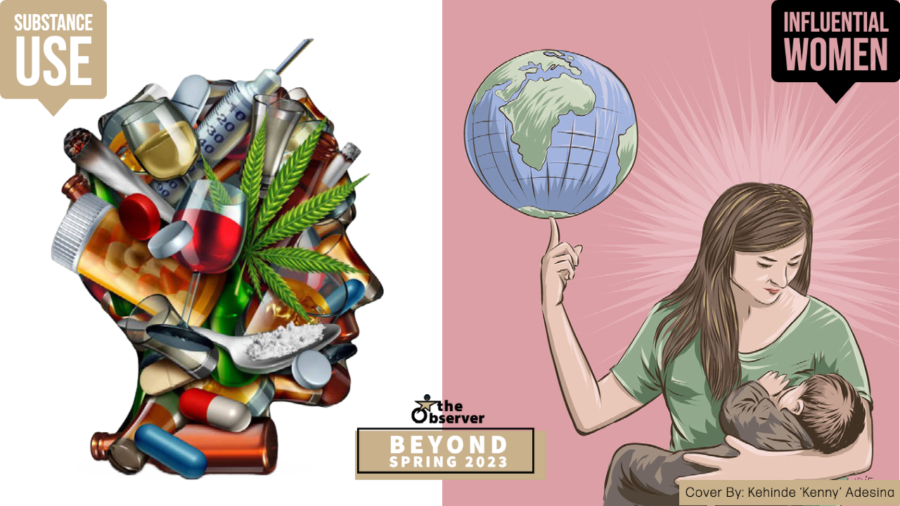Prior to the 2022 midterm elections on Nov. 8, you could turn on any news station to hear pundits and Republican candidates alike exclaiming about the big “red wave” that was imminent. Well, much to the chagrin of Republicans, the red wave proved to be merely a red trickle. Republicans won a slim majority of four seats in the House of Representatives (the House), including a candidate who lied about his entire resume, George Santos (R – New York), and is currently facing multiple investigations. In addition to bucking the historical trends in the House, Democrats maintained their hold on the Senate, increasing their number of seats, and increased their share of Governor’s mansions without losing control of a single state legislative chamber, the last of which has not happened since 1934. Not quite the overwhelming red wave or even “tsunami,” as some overzealous pundits projected, denying the Republicans of the electoral mandate they crave.
In the House, the only place Republicans won a majority, there is much animosity among the internal caucuses that make up the House Republicans and Senate Republicans. Following the start of the 118th Congress, Kevin McCarthy faced a very embarrassing showing from Republicans in the House on the vote for the Speaker of the House. During 15 raucous rounds of roll call voting, a minority of the Republican caucus, of which many are members of the House Freedom Caucus vehemently opposed McCarthy, denying him the Speakership he claimed he was owed. Round after round of votes, these stubborn holdouts gleaned concession after concession from the Republican leadership, sure to weaken the Speaker and empower fringe elements of the party until McCarthy was finally able to clench the Speakership. But not before the public got to witness exasperating levels of Republican consternation and confrontation on the House floor, leaving the country with the image of a party that is divided, disjointed, and unfit to govern.
According to historical data, the party in power in the White House during their first midterm election typically loses seats in Congress. In the data, we can see this precedence evidently. In 1994, Bill Clinton lost 52 seats; in 2010, Barack Obama lost 63 seats; and in 2018, Donald Trump lost 40 seats. One deviation from this was George W. Bush in 2002, who gained eight seats in that midterm election, but primarily due to the “rally around the flag” effect of the 9/11 terrorist attacks and propped up by a 67% presidential approval rating. In 2022, Joseph R. Biden only lost nine seats, which is quite astounding considering his low approval rating of 40% at the time of the midterm election. Compared to previous presidents such as Trump and Obama – who had 44% and 45% approval ratings, respectively, at the time of their midterm elections – we would expect that Biden would experience a similarly large seat loss. Alas, sadly for Republicans, he only lost a fraction of the seats that historical trends predicted.
As explored in previous parts of this series, Trump’s redefinition of what it means to be Conservative, the Trump endorsement, Republican primary voters, and the lurch toward the right have all affected the lack of Republican success in the 2022 midterm elections. Despite no longer being president, Trump’s shadow looms large over the Republican party. Many of the candidates he endorsed, especially in competitive seats, were simply too far-right or too unhinged for the comfort level of many independent voters, contributing to the loss of important votes among a crucial constituency needed to produce a “red wave” in the 2022 midterm elections. Many of the GOP Senatorial candidates had little experience and proved to be weak candidates, facilitating the picking up of seats by Democrats. Beyond the partisan dynamics, the June ruling of Dobbs v Woman’s Health also helped to invigorate support by pro-choice voters for candidates who supported protecting abortion rights, of which many Democrats were. This confluence of dynamic events resulted in a red trickle with a slim majority in the House of Representatives and a widening Democratic majority in the Senate.
While the 2022 midterms did not produce the “red wave” that was predicted, Democrats really do not have much to celebrate other than the dire predictions not coming to fruition. They lost important competitive districts because their messaging was poor and unfocused on issues important to voters. They also have serious concerns and problems connecting with the electorate that the party needs to acknowledge and deal with head-on if they plan to recapture the majority. The boogeyman of Trump and Trumpism is not a party platform, and denying obvious realities that voters face daily, such as inflation, only serves to perpetuate the idea that Democrats are elitists and out of touch with everyday, ordinary Americans. Both parties need to have serious post-mortem discussions regarding changes that need to be made for their party’s future success. But will they?
Since modern politics in the US has become a consistent dichotomy of us versus them, with devolution to tribalism, can we truly expect either party to find the necessary answers required to lead their respective party to success? I tend to be a “glass half full” kind of guy, but I cannot confidently find a promising bright side to this question. Both parties appear to be lost and urgently need an internal examination and reset if voters hope to continue to have a successfully functioning democracy. Sadly, neither party seems to demonstrate the political will to do what is necessary to correct the errors and problems within their parties and focus on the erosion of our democracy.
Our politicians appear to care more about messaging today than they do about legislating, and this is a problem that affects us all. Because what moves the news is discord and calamity, it is rarely discussed that many Americans agree on far more than your average pundit would lead you to believe. However, it will have to be seen if we can make the hard choices and elect representatives to perform the difficult work of legislating our complex problems instead of spending time and taxpayer dollars calculating what might be the best party message while raising as much money for their political futures as they can. Many of us have grown up in this country, unable to fathom the idea that our democracy could be endangered. John Adams once said, “remember, democracy never lasts long. It soon wastes, exhausts, and murders itself.” The sooner we are willing to face the troubling realities in front of us, the quicker we can work together to find their solutions before our democracy becomes extinct and relegated to a footnote in history.
















